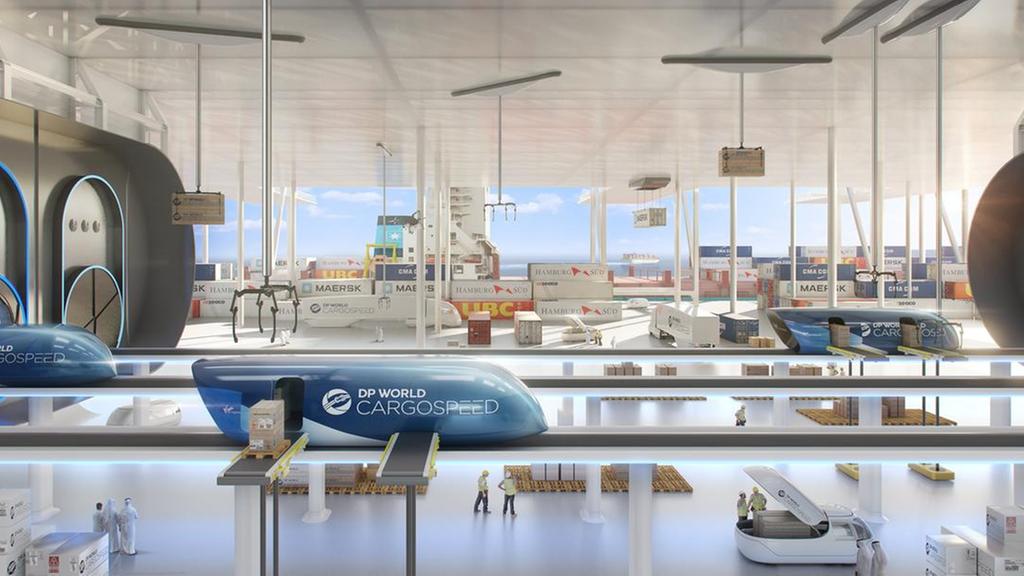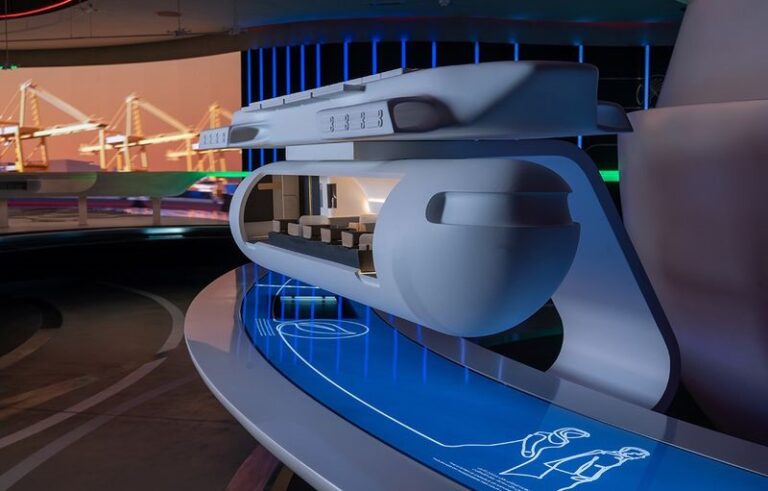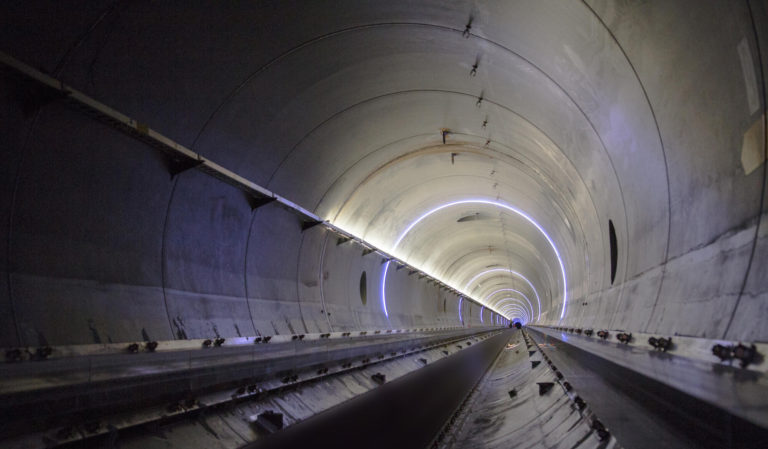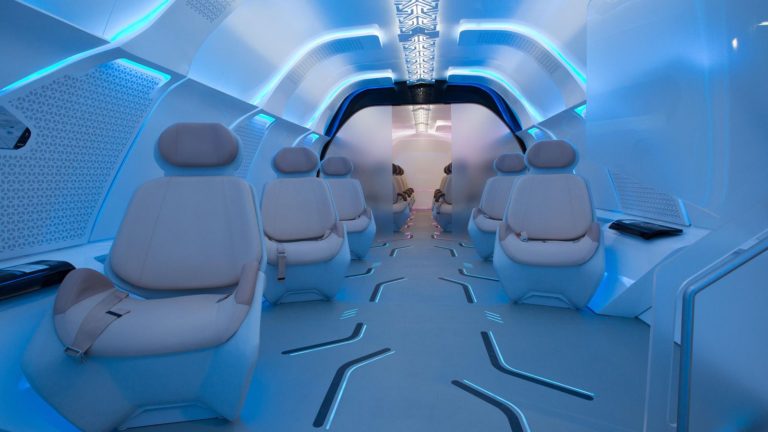A revolutionary new transport network that can move goods anywhere in the world in just 48 hours is being proposed for Dubai.
At the heart of the system is a cargo hyperloop developed by Richard Branson’s Virgin Hyperloop and backed by Dubai Ports.
The new venture is called DP World Cargospeed and will provide deliveries at “air speed at the price of transport by land”, said Sultan Ahmed bin Sulayem, the CEO of DP World.
The proposed network would serve both passengers and freight, connecting ports to the supply chain.
Time sensitive goods would be packed in special pods that would replace the traditional shipping containers and could be loaded directly into hyperloop pods.
It is estimated that around one third of the world’s cargo is time sensitive. Backers of the cargo hyperloop say it would take heavy lorries off already congested roads and cut warehouse space by a quarter.
While the market for express and cargo freight is set to reach US$4 trillion worldwide with consumers expecting on-demand services from companies like Amazon, services are limited by airline and airport capacity.
In a mixed-use system, the hyperloop would carry mainly passengers during peak hours, but switch to freight at other times.
Virgin Hyperloop One has currently reached speeds of 400 miles an hour on its test bed in Nevada, using unmanned pods.
It is negotiating projects in three countries: from Mumbai to Pune in India, in Saudi Arabia and the UAE.
The Mumbai projects is likely to be the first to carry actual passengers. Virgin Hyperloop One says it could have the first stretch of a viable network operating by 2021 with a 13 kilometre track in India as a prelude to a full passenger service of around ten times that length.
Josh Geigel, the CTO and co-founder of Virgin Hyperloop, described the challenge as “trying to build the airplane, the airport, the air traffic control and the sky. Now we are adding ports.”
The announcement follows the first stage of a feasibility study, with planning now moving to the next stage that will include safety and technological elements.
Last December, Dubai Ports was part of the latest round of funding for Virgin Hyperloop One.
Details of the routes are yet to be announced along with a detailed timeline for construction. A working passenger hyperloop, which uses electrical power and a tube pressurised to the equivalent of an aircraft at 50,000 feet, is still in the future.
On Thursday, Dubai’s Roads and Transport Authority denied reports of a hyperloop between Abu Dhabi and Dubai, saying that the advanced transport system was “still under the process of research and development”.
They said: “Projects of this magnitude and complexity must be preceded by careful planning and engineering studies.”
Rob Lloyd, the CEO of Virgin Hyperloop One, accepted that getting a system operation would take time.
“Governments are going to expect this to go through a process and the process they expect will be engineering studies and route analysis,” he said.
“They are going to want to understand the environmental impact, they want to understand the land that’s available and land that needs to be acquired. So you can’t do this thing in weeks, but you can do them in several years. “
He described the India route as “economically and technically viable,” saying the government was “committed to starting construction of the civil engineering part of the infrastructure in 2019”.
Mr Sulayem said that existing supply chains were often inefficient and led to delays costing billions. “The biggest selling point [of a hyperloop] is time. Time you can’t buy. It is very, very valuable.”



